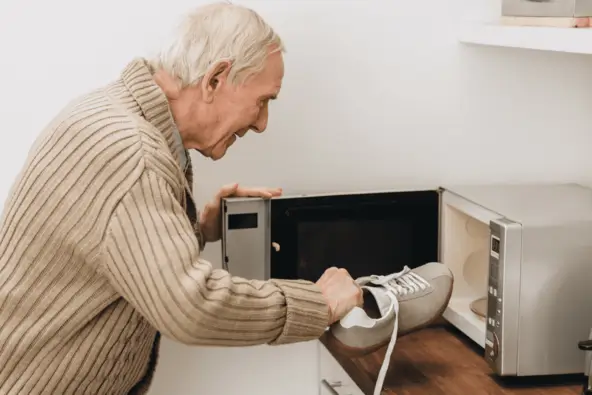As I was seeking dementia care homes near me, I began wondering how I was going to find a home care provider that was able to keep their emotions in check. I knew it would be difficult being a healthcare worker, but I did not want the emotions of the job to cloud judgment or affect how my loved one was feeling as they were being cared for.
One of the most challenging things for in home care providers is keeping their emotions in check throughout the entire shift. Any healthcare worker, but especially for a dementia, must be on their toes and alert at all times. How can you train yourself to control your emotions? Below we will begin seeking the answer to this question. Remember, though, that not every option is suited for every person. You must find what works for you. These are all suggestions.
Create a Support System
Having people around you to support you is imperative when working in positions that take a lot out of you emotionally. It allows you to ask for help when you need it, relax after a long day, and vent when you need to. With someone you can vent to and share your feelings with is a complete game-changer. This will allow you to reset your mind and prepare for another shift without bringing feelings in from the last shift that may cloud your judgment.
Learn to Deep Breathe
Doing deep breathing exercises can help you to calm down during a heated moment. If you can practice breathing in through your nose and out through your mouth before a difficult time comes, you will be better prepared to employ this relaxation technique in the moment.
Practice makes perfect, and practice helps build muscle memory. This means that the more you practice breathing, the more you will be able to remain generally calm, and the more likely you are to remember the technique during a crisis. This ability to remain calm will be invaluable while working as a healthcare provider for a dementia patient. Dementia patients can be challenging at times, but remaining calm, cool, and collected will help keep a stable environment so that the patients can continue feeling a sense of safety.
Learn to Compartmentalize
Compartmentalization can be a challenging thing for some people to learn, but it is a very valuable lesson when you need to remain focused on one thing and many things are going on around you.
Part of the challenge with compartmentalization is learning when to use it. A good rule of thumb would be to keep work stress at work and home stress at home. Sometimes, this can be difficult to do because emotions tie into everything you do in your life.
One way to practice compartmentalizing things before beginning your shift is to take about five minutes to yourself and close your eyes. Practicing a moment of deep breathing like mentioned above can help calm you, then you can begin to imagine each thing you are thinking about as an item. You can also do this for when you end your shift and go back to your personal life.
It may seem silly to use your imagination in this way, but it can help you to separate your thoughts and feelings instead of allowing them to stay as a jumbled mess. If you did not do this, you are likely to find yourself burning out and mixing up your personal life with the difficult days of your job.
Working for this type of patient can be a challenge at times. There are many emotions that you will cycle through, depending on what stage of dementia your patient is experiencing. Some days will be harder than others. However, with the proper support in both your personal and professional lives, the knowledge and practice of deep breathing exercises, and the ability to compartmentalize your emotions, you will be able to overcome the difficult days.
At TLC Homecare, we provide you with the tools you need to be successful as a dementia caregiver. Contact us today to learn how you can join our team and gain all the tools you need to help yourself and your patients.
